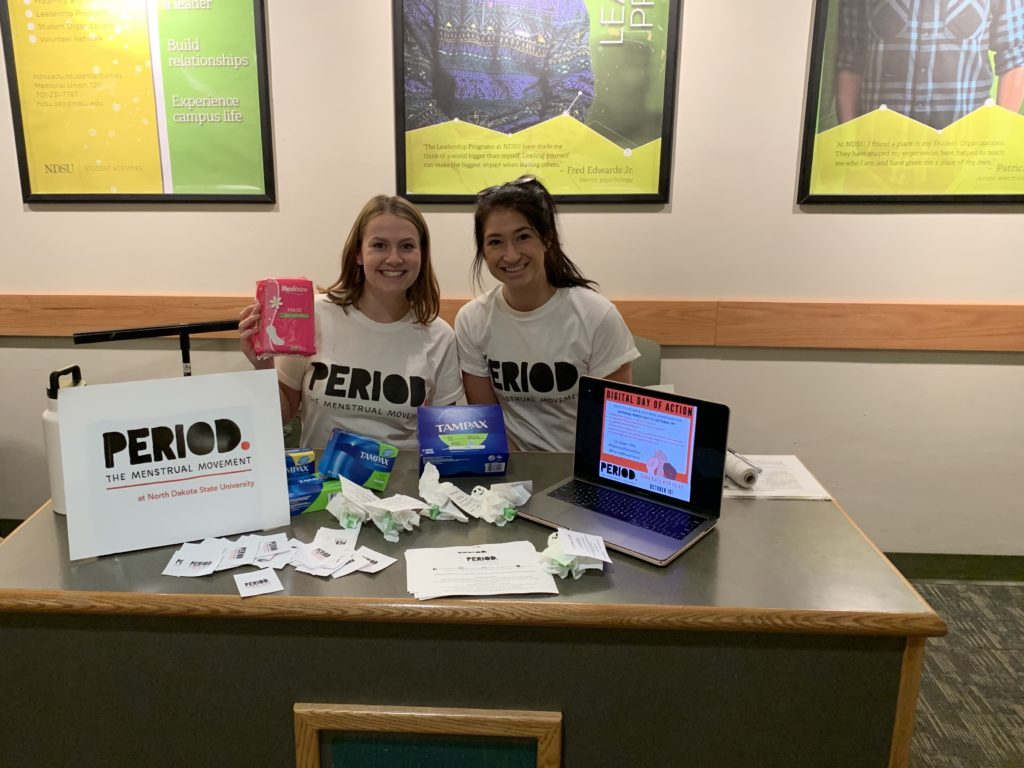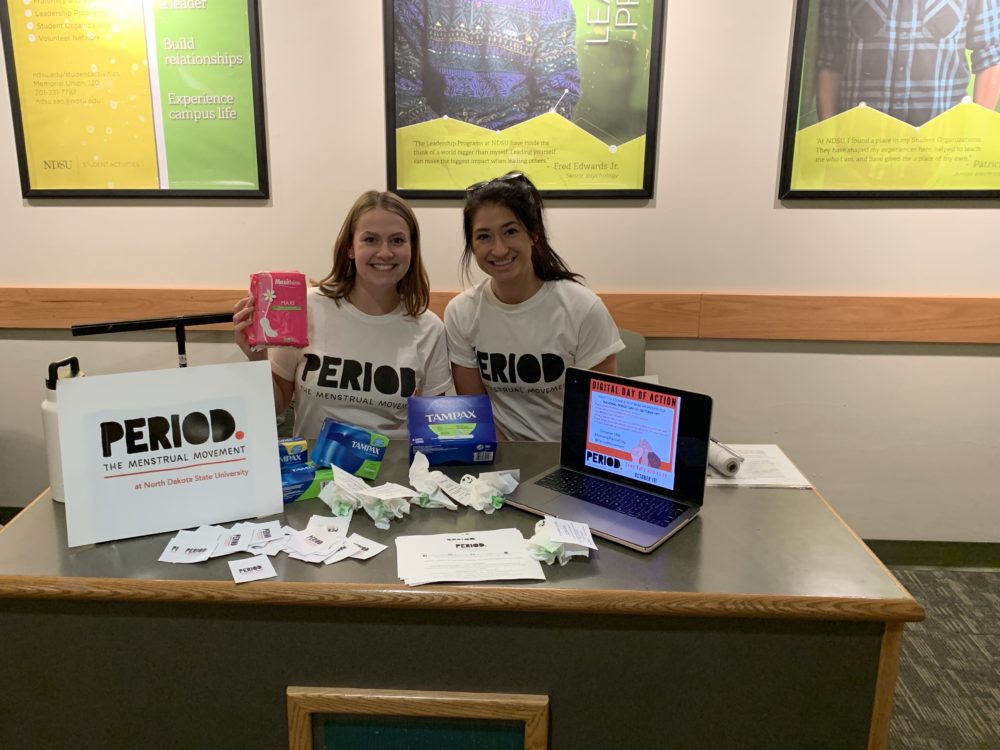Menstrual Movement encourages everyone to become comfortable with the topic of periods

The menstrual movement at NDSU collected menstrual products
Period. The Menstrual Movement at North Dakota State University held a period product drive on Oct.18. The menstrual products and cash donations received went to women in the Fargo-Moorhead area who aren’t able to afford feminine hygiene products.
Taylor Spreeman and Allison Schwark, who are both part of the movement on campus, shared their thoughts on the stigma surrounding periods.
They both agreed that there is a lack of education when it comes to learning about our developing bodies starting in grade school.
“In school, the girls went to one room while the boys were in a separate room,” Spreeman said, reflecting on the approach public schools take to teach students about their bodies.
Spreeman and Schwark discussed how this then leads to the stigma of periods in society and on a national level.
“We didn’t ask to have periods.”
Taylor Spreeman
Schwark described a video made by the National Menstrual Movement titled “See Red”. The video explained how one in four women can’t afford menstrual products leading to period poverty.
“If faces were bleeding, someone would do something,” the video stated and Schwark mentioned as well.
Whether more people are becoming aware of the stigma on periods, both Spreeman and Schwark think there is a change in perspective.
Both see that more people are becoming aware of how many women are being affected by the pink tax, though there is “A lot to be taught,” as Schwark said.
The pink tax, also known as the tampon tax and more broadly as the period tax, can create boundaries for affordable menstrual products and can lead to period poverty.
According to CNN, the pink tax is a sales tax applied to pads and tampons in stores. Though the tax is used to help tax revenue in states, there have been numerous debates regarding whether the tax allows for gender inequality of female consumers across the U.S.
CNN also reported that earlier in October, Ohio passed a proposal through the House that would diminish the pink tax in the state. The proposal still has to pass through the Senate and be signed by Governor Mike DeWine in order for the tax to completely go away.
There are currently ten other states, one of which is Minnesota, that has gotten rid of the sales tax placed on period products altogether.
Whether the other 40 states will get rid of the tax on period products anytime soon, Spreeman and Schwark see it taking a while.
Spreeman compared the tax to “systematic oppression” on women as she said, “We didn’t ask to have periods.”
Period, the Menstrual Movement at NDSU is a new organization on campus this year that holds a variety of fundraising events such as bake sales and period product drives to bring awareness to the number of women who can’t afford to purchase menstrual products.
Spreeman mentioned that over the course of the school year, there will be more period product drives with the products collected set to be given out at the end of December by United Churches.
A collection bin was set out in front of the Prairie Den in downtown Fargo allowing everyone to donate products to support their cause.
NDSU’s Menstrual Movement is part of a national movement to educating everyone on period poverty and stigma.
The Menstrual Movement fights the stigma on periods by discussing periods openly while advocating for a change of perspective.
On Oct. 19, members and supporters of the Menstrual Movement rallied throughout the nation calling for an end to the pink tax and national recognition on periods.
In North Dakota, a rally was held at the State Capital in Bismarck. Schwark was able to attend the rally, but for those like Spreeman who couldn’t make it, everyone could rally through social media.
People who weren’t able to attend were encouraged to post a picture of themselves holding a menstrual product while captioning why they support the movement using #NATIONALPERIODDAY.
The goal of the rally was to get the attention of Congress and government officials while calling for a national period day.
